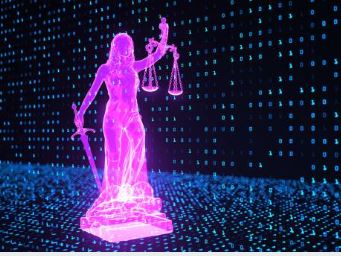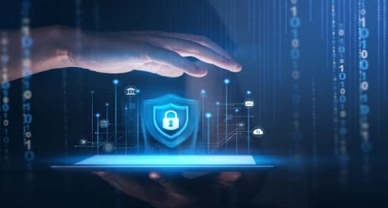The Metaverse And Legal Frameworks Surrounding It
Introduction
The Metaverse has come a long way since Neal Stephenson mused about it in his novel Snow Crash where he envisions an immersive virtual realm which is accessed by sporting VR goggles. Now, the Metaverse has evolved to be a virtual world bridging smaller virtual universes providing innumerable experiences ranging from leisure activities including virtual parties and conferences to serving as a foreground for economic, social and political transactions. A report by Citibank published in March, 2020 observes that the Metaverse economy could be a thirteen trillion dollar total addressable market by the year 2030. Layered by the blockchain, cryptocurrency and NFT driven Web3 technology whose decentralised approach allows buyers total ownership over their purchases in the virtual universe, the Metaverse has been steadily gaining financial, cultural and social traction in the world. With over a 177 billion dollars in investment since the year 2020 , it is imperative that a legal framework exist to ensure a standard of diligence, trust and legality in the Metaverse. The object of this essay is to shed some light on the legal implications of the Metaverse and discuss how existing legal frameworks can be used to regulate it.

The legal implications surrounding the Metaverse
The wide scope of utility of the Metaverse along with the inevitability of disputes arising through virtual interactions poses the inherent need for its regulation through a legal framework. However, given the early stage of the introduction of the Metaverse to the general public, it has been admittedly difficult to chalk out the responsibilities of a regulator and that of the legislature to create a legal framework for the shared virtual universe. But needless to say, the Metaverse brings into picture several aspects of the law such as Copyright law, Contract law, Tort law and Criminal law. The Metaverse provides a never seen before opportunity for interpersonal interactions on a scale never dealt with in the past. This coupled with future technological advancements can undoubtedly lead to social transformation and progress. But there are two sides to every coin. The sheer number of variables in the metaverse, that is, the avatar owners, software creators and other countless service providers in it, paired with the ever evolving nature of the AI systems employed, raises the pertinent question of who is liable for what? And what mechanisms do we use to adjudicate any disputes which may arise in any of the countless transactions taking place in the Metaverse? Further, this questions the extent of the use of existing real world statutory provisions while dealing with a dispute originating in the virtual shared universe.
Contract Law
Section 2(h) of the Indian Contract Act,1872 defines ‘Contract’ as “An agreement enforceable by law”. In the Metaverse, there are numerous agreements formed between the denizens of the virtual universe, i.e. the avatar users. These agreements usually revolve around the sale of virtual goods and the renting and buying of virtual properties among others. Such agreements obtain the force of law, hence translating into a binding contract. Sales in the Metaverse are dominantly executed using a ‘Smart Contract’. A Smart Contract is a self executing contract with the terms of the agreement between buyer and seller being directly written into lines of code. The code and the agreements contained therein exist across a distributed, decentralised blockchain network. The code controls the execution, and transactions are trackable and irreversible.
If we were to test the validity of Smart Contracts through the eyes of Indian jurisprudence, we would have to verify its conformity to Section 10 of the Indian Contract Act, 1872 which elaborates on the essentials of a contract. According to the section, the essentials for a contract are as follows, free consent, capacity of the parties to enter into the contract, lawful consideration and a lawful object. When the same is applied to Smart Contracts, the criteria of offer and acceptance is fulfilled but these are basic requirements which are easily proven. Furthermore, according to Section 10A of the Information Technology Act, 2000 as well as Section 65B of the Indian Evidence Act, 1872, electronic or digital contracts are admissible in a court of law, but the prerequisite condition is that they should have the digital or electronic Signature by the Certified Authority authorised by the government. However, smart contracts fall short in this regard as they are decentralised in nature and are not regulated by a government or a government affiliated authority.
Defamation Law
Section 499 of the Indian Penal Code defines the crime of defamation as, “Whoever, by words either spoken or intended to be read, or by signs or by visible representations, makes or publishes any imputation concerning any person intending to harm, or knowing or having reason to believe that such imputation will harm, the reputation of such person, is said, except in the cases hereinafter expected, to defame that person.” From a reading of the section, it can be gleaned that there are three elements to criminal defamation:
● The imputation must be made to harm the person against whom it is made
● Must be made by either words, written or spoken, gestures, signs or other visible representation
● The imputation must be published
If a person behind an avatar in the Metaverse seeks to impugn the reputation of another person in the Metaverse using that avatar, would it amount to criminal defamation under the Indian Penal Code? For further clarity, the practice of “deepfaking” can be taken. Deepfakes are synthetic media in which a person in an existing image or video is replaced with someone else’s likeness. Deepfakes can be used for ends ranging from harmless political satire to fraud and manipulation of pornographic material. Deepfakes have the potential to have a troubling impact on people’s reputation and certain elements take advantage of the relative social anonymity the Metaverse provides them and use it to their illicit ends. Deepfaking in the metaverse, other than acting as an imputation on a person’s reputation, is also a gross violation of their privacy and personal data. Hence, other than being actionable under sections 499 and 500 of the Indian Penal Code, is also contravening the judgement of Justice KS Puttaswamy vs. Union of India which recognized the right to privacy as a fundamental right.
Unfortunately, most of the instances of defamation in the Metaverse are those that come under slander. While slander is included in sections 499 and 500 of the Indian Penal Code, it is only actionable on proof of actual damage and not actionable per se like libel. While, it does not preclude the aggrieved party from bringing a civil suit, proving actual damage is often hard as slander happens in a transitory form unlike libel which happens in a permanent form.
Criminal Law
Criminalisation of virtual conduct in virtual spaces such as the Metaverse can be classified into two: Virtual conduct that inflicts harm in the real world and virtual conduct that inflicts harm in the virtual world. The former predominantly being instances of traditional cybercrime. It can be acts such as identity theft or fraud which inflict harm in the real world. Cybercrime is different from traditional crime because it has the potential to cause mischief on a much higher scope because it does not suffer from the time, space and distance limitations that traditional crime suffers from. But traditional cybercrime has been existing long enough for countries to build legal frameworks to combat them. For instance, the Criminal Law (Amendment) Act, 2019 has made cyberstalking an offence under section 354d of the Indian Penal Code, 1860. Furthermore, section 67 of the IT Act, 2000 makes cyberstalking and cyberharassment punishable with five years of imprisonment and rupees one lakh as fine.
Virtual conduct that inflicts harm in the virtual world, however, is much harder to define and build frameworks for. Popular belief is that, as the act is done in the virtual world, it is by definition, not in the real one, thus doing no harm in the real world. This however is wrong as it incorrectly assumes that as the commission of the act was done in a virtual world, the extent of its damage would not go beyond the limits of the same world. This fails to take into consideration the fact that both perpetrator and victim are physically located in the real world. For example, there have been instances where reports have emerged of sexual assault on the avatars of women on the Metaverse. The pertinent question here is whether assault in the virtual world would be as grave as an assault in the non virtual world. If users in a virtual environment attach less importance to their digital avatars, the harm is correspondingly less. However, in a long term environment where one has learnt to identify with one’s avatar on a greater level, these seemingly fleeting virtual violations might have a strong psychological and moral impact on the victim. This reasoning becomes even more disturbing when discussed in the light of a Gartner research study in February, 2022 which says that a significant twenty five percent of people would spend at least one hour per day on the Metaverse by the year 2026.
Some experts say that the law not recognizing digital avatars, as well as the fact that the Metaverse is a global ecosystem makes it substantially hard for advocates to litigate virtual crimes. Here, also comes into picture the limited applicability of the pre existing statutory provisions while dealing with virtual crimes. Supreme Court Advocate NS Nappinai, while speaking about the same, opined that one should look for remedies based on the mode and manner of commission of the crime in question. As an example, he used the rape of an avatar on any virtual platform. He said that in such cases, while section 376 of the Indian Penal Code will not be applicable, the act will still be actionable under section 67A of the Information Technology Act, 2000.
There have also been instances where people have faced prosecution for stealing property which had value in the non virtual world. In 2007, a dutch teen was charged with theft over the theft of virtual furniture in Habbo, a virtual game. Similarly, in 2005, Japanese police arrested a Chinese exchange student over stealing virtual property in Lineage, an MMORPG game.
Conclusion
The Metaverse would undoubtedly pose its own sets of obstacles when it comes to its regulation and the definition of its legal jurisdiction. While the law is regarded to be dynamic on a macroscopic level, change is still slow to take place. Concepts like digital property and avatars are still alien to the minds of lawmakers and legal theorists. The legal implications of the Metaverse still remain to be deliberated and debated on, so that a regulatory framework can emerge and be set up in a constructive and productive manner. The scope of the Metaverse remains shifting and increasing with the ever evolving state of Artificial Intelligence and the web3 system the virtual world is encompassed on. This rapid expansion of its scope firmly necessitates the need for a strong legal framework to regulate the Metaverse and all its curiosities. The Metaverse, once an alien concept describing a fantastical and dystopian reality, now lies close within our reach. Being a platform with wide ranging implications, not only shows significant potential for the development of human interactions, but also brings forth a challenge that our lawmakers will have to face when they question fundamental terms like identity, sovereignty and deterrents, terms which they once thought to be unshakeable in their foundations. This exercise might give rise to new and unpredictable meanings to these terms which would mark a definite change in the legal history of the world as we know and think of it.
Author: Aditya S Nair, 2nd Year BBA LLB (Hons) Student, CHRIST (DEEMED TO BE UNIVERSITY), PUNE LAVASA CAMPUS, in case of any queries please contact/write back to us at support@ipandlegalfilings.com or IP & Legal Filing.


